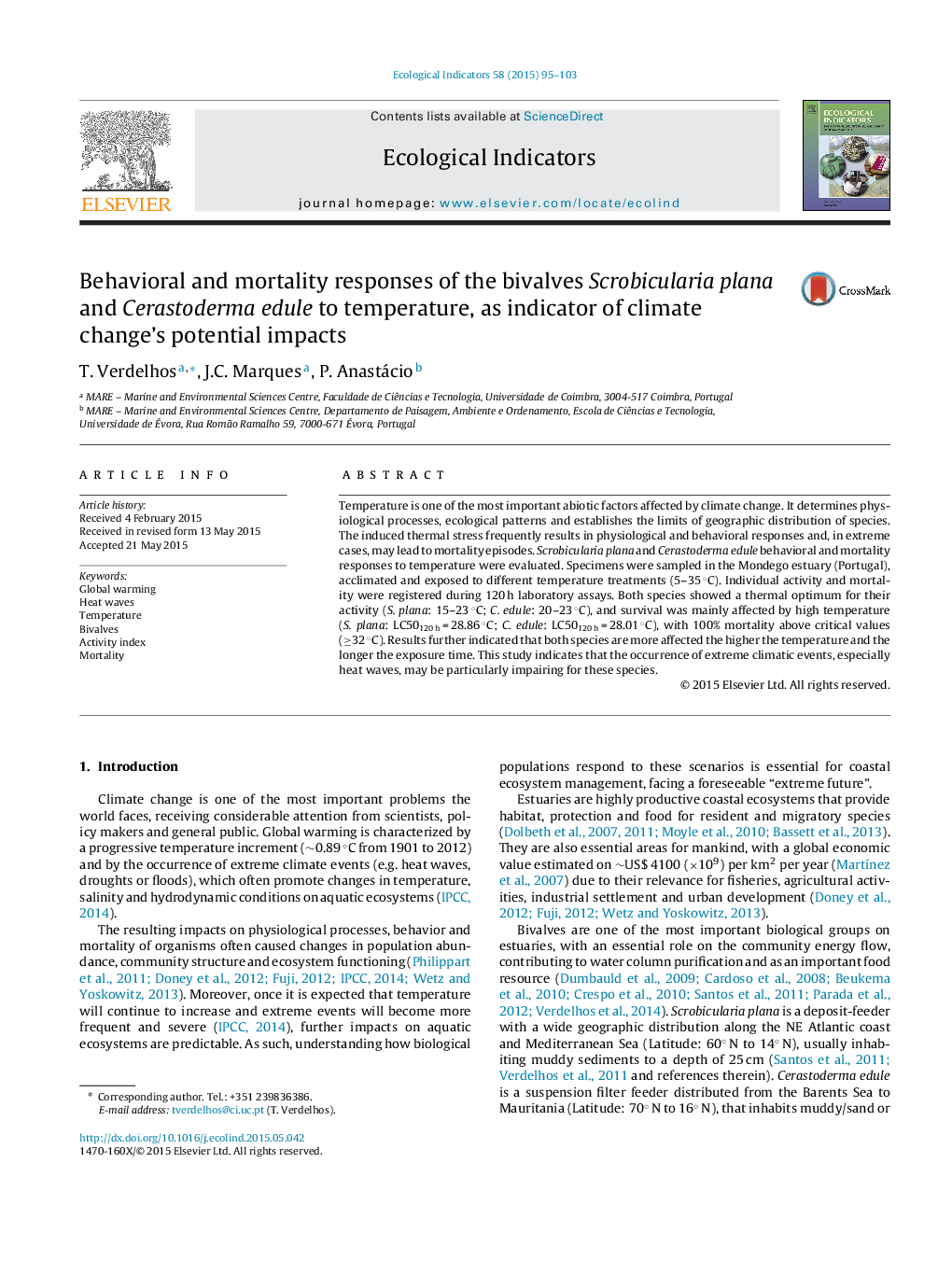| Article ID | Journal | Published Year | Pages | File Type |
|---|---|---|---|---|
| 6294225 | Ecological Indicators | 2015 | 9 Pages |
Abstract
Temperature is one of the most important abiotic factors affected by climate change. It determines physiological processes, ecological patterns and establishes the limits of geographic distribution of species. The induced thermal stress frequently results in physiological and behavioral responses and, in extreme cases, may lead to mortality episodes. Scrobicularia plana and Cerastoderma edule behavioral and mortality responses to temperature were evaluated. Specimens were sampled in the Mondego estuary (Portugal), acclimated and exposed to different temperature treatments (5-35 °C). Individual activity and mortality were registered during 120 h laboratory assays. Both species showed a thermal optimum for their activity (S. plana: 15-23 °C; C. edule: 20-23 °C), and survival was mainly affected by high temperature (S. plana: LC50120 h = 28.86 °C; C. edule: LC50120 h = 28.01 °C), with 100% mortality above critical values (â¥32 °C). Results further indicated that both species are more affected the higher the temperature and the longer the exposure time. This study indicates that the occurrence of extreme climatic events, especially heat waves, may be particularly impairing for these species.
Related Topics
Life Sciences
Agricultural and Biological Sciences
Ecology, Evolution, Behavior and Systematics
Authors
T. Verdelhos, J.C. Marques, P. Anastácio,
